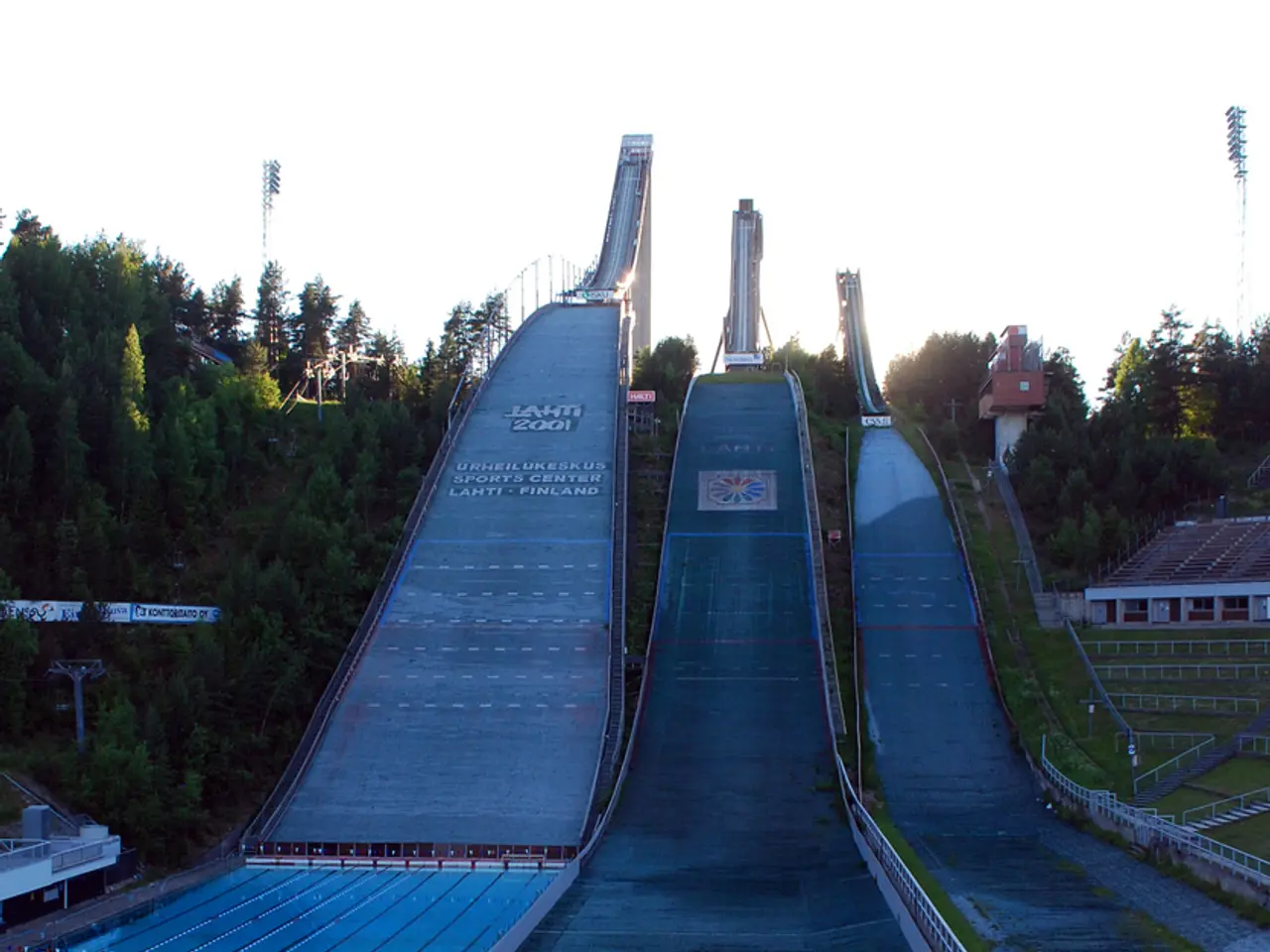Leisurely dips in the Rhine can be fatal
The Rhine River, flowing through Düsseldorf, has become a dangerous playground, leading local authorities to impose a ban on swimming and bathing within the city limits. The ban, effective from mid-August 2025, comes in response to a significant increase in drownings and rescue operations this year[1].
The entire stretch of the Rhine within Düsseldorf is considered hazardous. Recent incidents, including the drowning of a young boy in July and the loss of five men in June, highlight the risks throughout the city's riverside[1][4].
The Rhine's unpredictable currents, caused by its strong and uneven flow, pose a significant threat. Add to this the allure of summer's warm water temperatures, and the river environment, which is not designed or safe for swimming, becomes a recipe for disaster[1].
In response to the increased dangers, Düsseldorf has enforced a complete swimming and bathing ban along its city section[1]. The ban applies to all river access points and includes prohibition on entering water deeper than ankle level. Violators risk fines up to 1000 euros[1].
Neighbouring city Neuss has also adopted a similar bathing ban due to related dangers and fatalities[4].
Authorities and experts urge caution when it comes to swimming in the Rhine. Public safety campaigns and regulations are key components of the response. The ban represents an urgent measure to prevent further fatalities, acknowledging the river’s inherent dangers[1][4].
Currently, there are no designated safe swimming zones in Düsseldorf’s Rhine, reinforcing that it is unsafe and illegal to swim there.
In 2019, there were eight fatal drowning incidents in the Rhine in Düsseldorf. So far this year, there have been 30 rescue operations, with seven occurring since the start of the summer holidays[1]. Swimming in the Rhine is increasingly popular among Düsseldorf residents during the summer.
Tragically, a recent accident occurred last weekend in Trebur, Hesse, resulting in the loss of life for a 5-year-old boy and his 30-year-old mother in the Rhine[5].
The dangers of the Rhine's shipping lane and 'Kribben' areas, which can form treacherous whirlpools and currents, pose additional risks to swimmers[1][6]. Christian Ruda, the leading diving instructor of the Düsseldorf fire department, explains the dangers of the Rhine's shipping lane.
A joint exercise was conducted today, July 6, by the fire department and the German Lifesaving Association (DLRG) to warn about the dangers of swimming in the Rhine[7].
The COVID-19 pandemic and travel restrictions have led many Düsseldorf residents to spend their summer at home, potentially increasing the number of people venturing into the river[2][3]. It is crucial for everyone to heed the warnings and comply with the ban to ensure safety and prevent further tragedies.
References:
- Düsseldorf imposes swimming ban on Rhine River due to increased drownings
- Düsseldorf residents spending summer at home due to COVID-19
- Rhine drownings prompt swimming ban in Düsseldorf
- Neuss follows Düsseldorf with Rhine swimming ban
- Tragic Rhine accident claims lives of 5-year-old boy and mother
- Dangers of Rhine's shipping lane explained by fire department
- Fire department and DLRG warn about dangers of swimming in Rhine
The crisis in river safety has extended beyond swimming, as health-and-wellness activities like fitness-and-exercise along the Rhine also pose risks. The unpredictable currents and hazardous 'Kribben' areas make it dangerous even to wade in the water, with violators facing fines up to 1000 euros.
Given the unfortunate incidents, it is critical for everyone to heed the warnings and adopt precautions when it comes to any activities near the Rhine, not just swimming, to ensure safety and prevent further tragedies.




